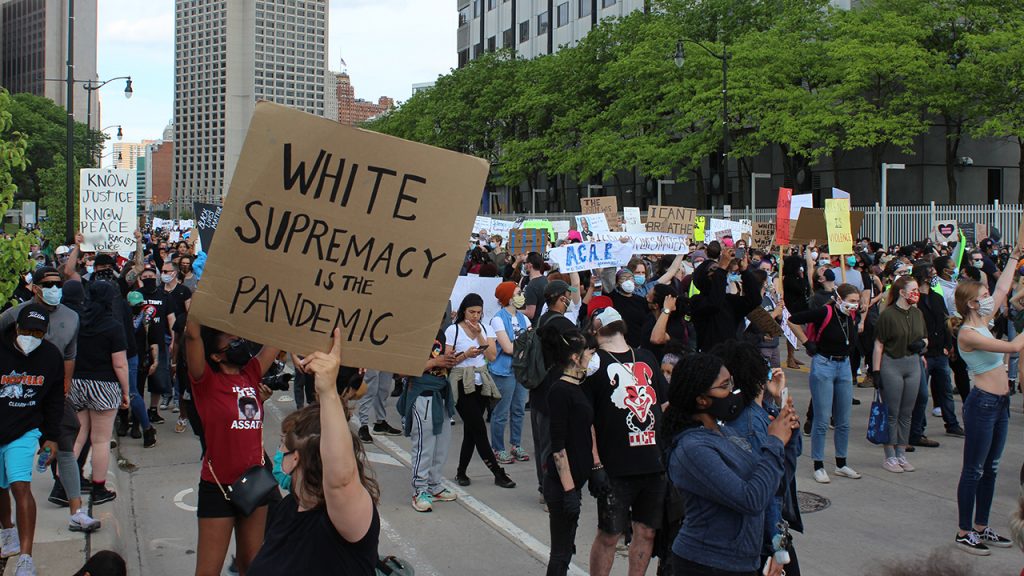Town Halls to Address Creating an Equitable Pandemic Recovery in Detroit
A new report details the disproportionate effects on Black Detroiters during the pandemic and explores what is needed to combat these disparities.

A new report details the extent of the COVID-19 pandemic’s disproportionate effects on Black Detroit residents. The report found that Michigan has the fourth-highest COVID-19 mortality rate for Black Americans, and that roughly 30 out of every 1,000 Black people living in Michigan can expect to die from the coronavirus during the pandemic. The report also explores what is needed to combat these disparities moving forward.
“Creating wealth, closing gaps in income is critical and important … but it’s like cleaning a room when the whole house needs to be clean … When we say it’s a systemic problem, we have to clean the whole house.” –Mike Rafferty, New Detroit
New Detroit will hold a series of town halls starting on Monday discussing equitable pandemic recovery. The town halls can be found on Facebook at New Detroit Inc.
Listen: How to address the pandemic’s disproportionate effects on Black Detroiters.
Guests
Dr. Rashawn Ray is the Rubenstein Fellow in Governance Studies at the Brookings Institution, and is one of the authors of the report. He says it explores how already-existing inequalities in Detroit were affected by the pandemic. “COVID-19 spills over into other aspects of people’s lives,” he says.
Ray and his team found that Black Detroit residents were the hardest-hit by the pandemic for several structural reasons. “When we looked at residents without health insurance … we found that residents in Detroit were much more likely to not have health insurance.”
Ray says there is a purposeful structure of racism in every aspect of life. “The disparities … often stems from unaddressed structural inequalities that undergird the rest of our lives,” says Ray. He says that in order to dismantle this systemic racism, it will take consistent work. “It’s not just about the mandating of policy, it’s about the implementation of policy.”
Mike Rafferty is CEO and president of New Detroit. He says the pandemic has highlighted racial disparities deeply embedded in American society. “Systemic racism has led, quite frankly, to the disparities in health care … the root cause of this problem is systemic,” he says. Rafferty explains that the existing inequalities in Detroit were made more extreme by COVID-19. “Because the root cause of this problem is systemic, I was also deeply concerned that all the gaps … could widen through the pandemic.”
Rafferty says it will take a unified effort to address these racial disparities. “Where we need to focus our attention is we have to make this a bipartisan issue,” he says. “Addressing racism head-on … it is a rising tide.” He says economic help is one thing, but the whole American system needs to be restructured. “Creating wealth, closing gaps in income is critical and important,” he continues. “But it’s like cleaning a room when the whole house needs to be clean … When we say it’s a systemic problem, we have to clean the whole house.”
Trusted, accurate, up-to-date
WDET is here to keep you informed on essential information, news and resources related to COVID-19.
This is a stressful, insecure time for many. So it’s more important than ever for you, our listeners and readers, who are able to donate to keep supporting WDET’s mission. Please make a gift today.
